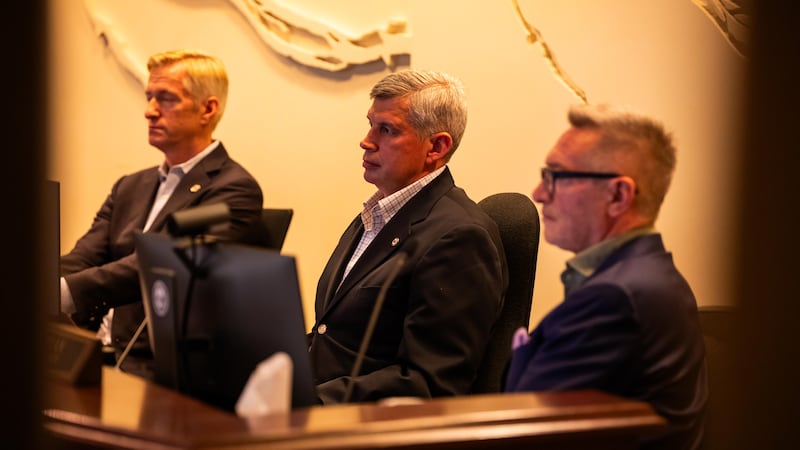The Portland City Council today narrowly rejected a camping ban that City Commissioner Rene Gonzalez first crafted a week ago as a means to give future mayors more control over the visibility of homelessness.
Mayor Ted Wheeler and Commissioners Carmen Rubio and Mingus Mapps voted against Gonzalez’s proposal, which went through several permutations over the past week.
The vote this afternoon was on amendments to Wheeler’s proposal—effectively swapping Gonzalez’s for Wheeler’s. So the council’s rejection of Gonzalez’s plan is not yet an approval of Wheeler’s; a vote on that will come next week.
Gonzalez first proposed a strict camping ban April 17 as an alternative to a set of restrictions on homeless camping proposed this spring by Mayor Wheeler. Gonzalez’s initial draft recommended that the rules of the ban be decided by the mayor, and that violators of the ban be sentenced to up to six months in jail, should federal and state law allow it.
Over the past week, though, Gonzalez’s proposal faded into something much softer. By Wednesday afternoon, when the City Council sat down at the dais in City Hall, Gonzalez’s proposal had changed once again.
Shortly after 2 pm, when the City Council had already begun its afternoon session, Gonzalez’s office circulated the most recent draft of his proposal, a move that ruffled the feathers of the mayor, Mapps and Rubio. It looked very different from the proposal Gonzalez had first floated one week ago. Perhaps most importantly, it removed any criminal penalties for violators of the ban—meaning that no one would go to jail over violating the camping ban.
That’s a sharp pivot: Gonzalez’s initial proposal called for up to six months of jail for violators.
During the Wednesday City Council meeting, Gonzalez explained that he’d changed his mind about the efficacy of criminal penalties.
“Gresham seems to be having reasonable success without criminalizing,” Gonzalez said. “The reality is, no one in this room knows with certainty what’s gong to motivate people who are service resistant to make better choices.”
But Gonzalez’s most recent draft kept the part of his plan that most rankled Wheeler: placing authority to set camping policy with the mayor’s office, rather than with the City Council.
Wheeler in a Tuesday press conference took umbrage with Gonzalez’s proposal, saying that the rules of such a consequential policy should be made by the entire council, not behind closed doors by the mayor.
“I feel very, very strongly that the City Council needs to be front and center, stand in the light of day, in front of God and country, and say what rules we’re going to enforce,” Wheeler said Tuesday morning.
Gonzalez bit back on the dais Wednesday afternoon, alleging that Wheeler’s office had “no appetite for collaboration” when crafting his proposal last year. Gonzalez also criticized the mayor’s proposal as insufficient and confusing and called its premise a “terrible message” for our city.
After an hour of City Council discussion in which commissioners peppered Gonzalez with questions about the legality and intent of his proposal, following by an hour of public testimony, Wheeler and Commissioners Rubio and Mapps voted against Gonzalez’s proposal. Wheeler and Rubio both scolded Gonzalez, after the vote, for the last-minute draft. Gonzalez and Commissioner Dan Ryan voted in favor of Gonzalez’s proposal.
The backdrop of the discussion: The U.S. Supreme Court heard arguments this week in a landmark court case out of Grants Pass that could fundamentally change how West Coast cities are allowed to regulate street camping. The majority of the judges on the Supreme Court appeared to lean toward overturning Martin v. Boise, the 9th U.S. Circuit Court of Appeals decision it had previously let stand that prohibits cities from criminalizing homeless if there isn’t adequate shelter available.
